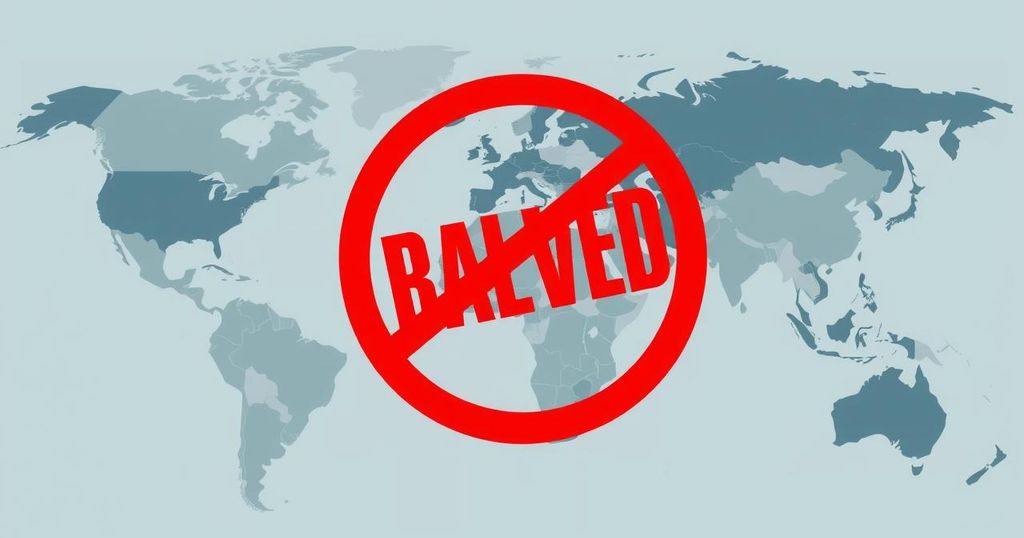President Trump Proposes Expanded Travel Ban Affecting Forty-Three Countries
President Trump has proposed an expanded travel ban targeting 43 countries using a three-tier system. This includes a red list for total bans, an orange list with limited restrictions, and a yellow list requiring improvements. The initiative aims to bolster national security by addressing deficiencies in vetting processes of identified countries, reminiscent of past travel bans.
President Donald Trump has put forth a proposal for an expanded travel ban targeting forty-three countries, structured within a new three-tier system. This initiative is encapsulated in an executive order dated January 20, designed to identify nations necessitating travel restrictions to the United States due to inadequate vetting and screening procedures. This expansion is a continuation of previous efforts aimed at enhancing national security by minimizing entries from nations perceived as high-risk.
The draft proposal, formulated by the U.S. State Department prior to the announcement, remains subject to modification before its finalization. Countries have been classified into three categories: red, orange, and yellow, each indicating varying degrees of restriction. Although a definitive decision has not been reached, the administration is actively assessing the accuracy of the listed countries and determining necessary measures for additional screening.
The red list comprises eleven countries from which citizens would be completely barred from entering the United States. These nations have been characterized by significant deficiencies in their vetting processes, posing a national security threat as assessed by the administration. Citizens from any of these eleven countries would face an outright travel ban to uphold security.
The orange list identifies ten countries subjected to limited restrictions, wherein citizens must navigate additional vetting processes, such as personal interviews, to qualify for a visa to the U.S. These nations are monitored by the U.S. government for their attempts to rectify deficiencies in their vetting processes.
Included in the yellow list are twenty-two countries, predominantly from Africa, which are afforded a sixty-day timeline to rectify their vetting and screening issues. Should these nations fail to address these concerns adequately, they may be relegated to the red or orange lists, facing stricter entry requirements.
This proposed travel ban reflects Trump’s ongoing strategy to safeguard U.S. borders amidst perceived threats. His January executive order underscores the necessity to deter entrants who may pose security risks, extending to individuals associated with terrorism or other criminal activities. The travel bans initiated under Trump’s first term were overturned by former President Joe Biden on his first day in office in 2021, which he described as fundamentally inconsistent with the American ethos of inclusivity.
In summary, President Trump’s proposed travel ban represents a significant shift in U.S. immigration policy, categorizing forty-three countries into three levels of restriction. The initiative seeks to bolster national security by identifying countries with inadequate vetting measures and imposing bans or additional screening requirements. The proposal reflects a continuation of previous policies aimed at securing U.S. borders, contrasting sharply with the more inclusive approach taken by the Biden administration.
Original Source: www.travelandtourworld.com




Post Comment